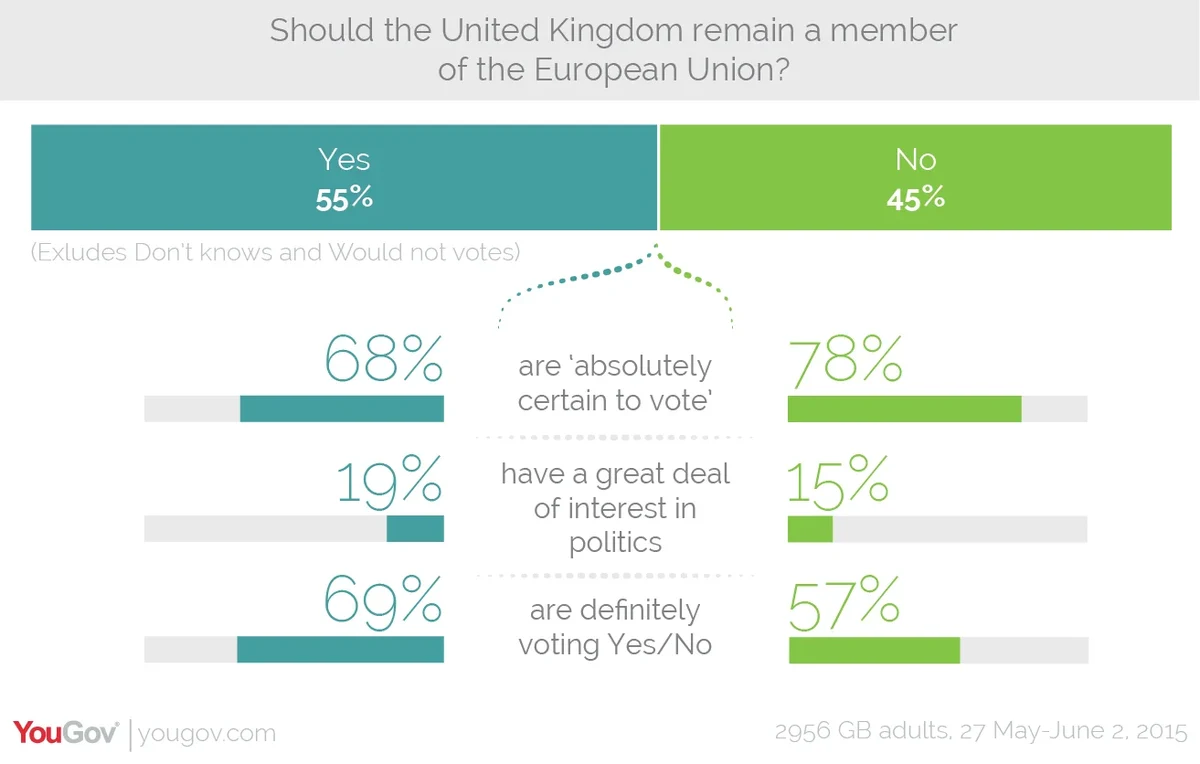In our new poll 'Yes' leads 'No' by 10, but look beyond the headline figures and 'No' voters are more likely to vote – and harder to reach
As the EU referendum campaigns start to form, the 'stay in', or 'Yes' camp, enjoys a 10-point lead (it's 55-45 after removing the Don’t knows and Wouldn't votes; please see the footnote about the question wording). While I would certainly bet on 'Yes' if a man in a pub offered me something near evens, as it's clearly the more likely outcome, the bookies' odds of 3/10 make it seem overpriced. Of course the biggest driver will be risk aversion – and leaving the EU must be deemed a massive risk however attractive it may be to lovers of derring-do freedom.
YouGov's latest poll suggests a 'No' vote is not entirely outlandish. First, the most passionate voters are the outers, and second, the voters most 'in play' are the ones the yes campaign will be least capable of reaching: those who are not interested in politics.
We asked three questions in addition to the referendum question: likelihood to vote, the respondent's level of interest in politics, and degree of certainty about the current in/out choice. The chart presents a neat summary.

I believe this defines a significant challenge to the 'Yes' campaign, as it is likely be led by pro-establishment progressives who are ill-suited to reaching switched-off but in-play voters. We saw that in the 2011 AV referendum: the Yes camp could engage fellow-politicos in complex arguments, but not ordinary voters, and while they started the campaign with positive prospects, they ended up suffering a crushing defeat. If the 'Yes' camp attempts to 'correct' the voters on the 'facts' while trying to win them over to a European vision, it could seem patronising and risks losing support. This may be another election in which playing to people's fear of change will be the surest path to victory.
*A third of the way through the fieldwork, we learned of the slightly adjusted proposal for the referendum wording, so for a third of the sample it was "Do you think that the United Kingdom should be a member of the European Union?" and for the other two thirds it was "Should the United Kingdom remain a member of the European Union?". The effect of the difference was minimal, under 1%, so we have not separated them for the report of these results. Including the DKs and WNVs, the results were ‘Yes’ 42%, ‘No’ 35%, ‘Would not vote’ 3%, and ‘Don’t know’ 19%.








